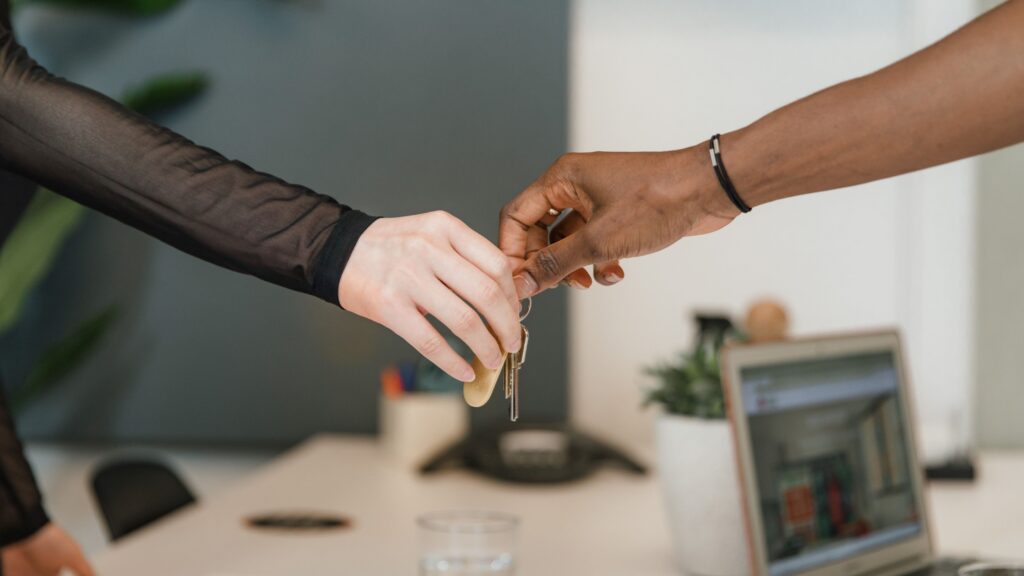A query from a family member followed by a client meeting led Financial Adviser Paul Heverin to put pen to paper for this article on pension property investment.
Listening to the news nowadays, you are likely to hear a report about Irelands’ housing crisis. One of the issues being reported is that landlords are leaving the rental market. Landlords claim it is not a good investment for them, the return is low and there is a more prosperous return elsewhere.
Good Investment?
A member of my family posted a buy-to-let property as an investment opportunity in our family What’s App group chat last week. They wanted the families’ opinion as to whether or not we thought this would be a good investment.
Fast forward a week and I have just met with a new company that I deal with (ITC), and they specialise in pension properties. They sent me insightful information on how to be a landlord using your pension. Using your pension this way is more tax efficient than the traditional way you would think of becoming a landlord. I shared this information in the group chat and I could not get over the response.
Hopefully, you will find it as useful as they did…
If you have a pension pot and want an alternative way of investing, or if you left an old pension with a previous employer, contact me at Paul@sysgroup.ie or 08-30127822. Let’s map out your financial journey together.
Pension Property Investment
Saving for retirement is an important part of retirement planning. The sooner you begin saving, the better prepared you will be for your retirement – and the more benefit you will receive from the available pension tax reliefs. Effective investment of your pension scheme is one way to combat the erosive effect of increasing inflation rates.
Here are some of the key points you need to know about pension property investment:
- What is Pension Property?
Pension property offers a unique opportunity for investors to take control of their retirement fund. Pension investors can acquire property in Ireland or the UK as part of their investment strategy.
- Why Invest in Pension Property?
You can choose the property you wish to invest in, whether it is residential or commercial. You can also use two or more pension schemes to purchase one property jointly. In certain circumstances, borrowing can be used to help with the purchase of property that may be valued higher than the available funds in your pension fund.
- Why Invest Now?
The latest DAFT report states that house prices and rents continue to increase nationally, with the average market rent, per month, rising from just over €1,400 a year ago to €1,567 in the first quarter of 2022. Rents in the first quarter of 2022 were, on average, 11.7% higher than a year previously, across the country, the strongest year-on-year increase in market rents since late 2016. (The Daft.ie Rental Price Report 2022 Q1)
Housing prices jumped by 2.4% on average during the first three months of 2022, with the average listed price at €299,093, which is up 8.4% on the same period in 2021. (The Daft.ie House Price Report 2022 Q1)
- What Are The Benefits?
Investing in pension property offers full flexibility to the investor to take control over the pension and to use their own knowledge of the market to seek out valuable opportunities. Furthermore, you will not be subject to Income Tax on the rental income or Capital Gains Tax on any gains made when selling the property, and any costs in connection with the property purchase are consumed by the pension fund.
- What Are The Rules?
- The sole purpose of the investment must be to provide benefits on retirement. It cannot be used for any other purpose.
- The property purchased through a pension must be at ‘Arm’s Length’. Meaning, that the pension cannot buy or sell property from you, your employer or anyone connected with you.
- You can’t use the property for personal use, this is prohibited.
- Pension schemes are not permitted to trade.
- The development of a property with a view to selling it is not allowed.
- Potential Costs Associated When Purchasing A Pension Property?
When purchasing a property through your pension, you should consider some of the potential costs. These can include:
- Stamp duty
- Solicitor fees
- Insurance
- Local property tax
- Letting agent fees
- Service charges
These costs will vary depending on the type of property you purchase.
- What Pension Schemes Are Eligible?
With some providers, you can currently purchase property through:
- Approved Retirements Funds (ARFs)
- Personal Retirement Savings Accounts (PRSAs)
- Buy out Bonds (BOBs) AKA Personal Retirement Bond (PRB)
- A combination of the above
Can Borrowing Be Used?
Borrowing can be used; however, it is not permitted for ARFs. PRSA and BOB can avail of borrowing, allowing our clients to enter into investment opportunities that might not have been available otherwise. Here are some of the key rules:
- No recourse to other assets
- Interest only loans are not permitted
- No loan terms over 15 years
- No assignment of rental income.
- The loan must be paid in full before retirement.
If you would like to invest your pension wisely or engage with a Financial Adviser to explore your financial future, contact us today.
SYS Group is regulated by the Central Bank of Ireland and offers a suite of financial services include; retirement and tax planning, investment, corporate structures, mortgages and more. Learn more about SYS Group, here.










